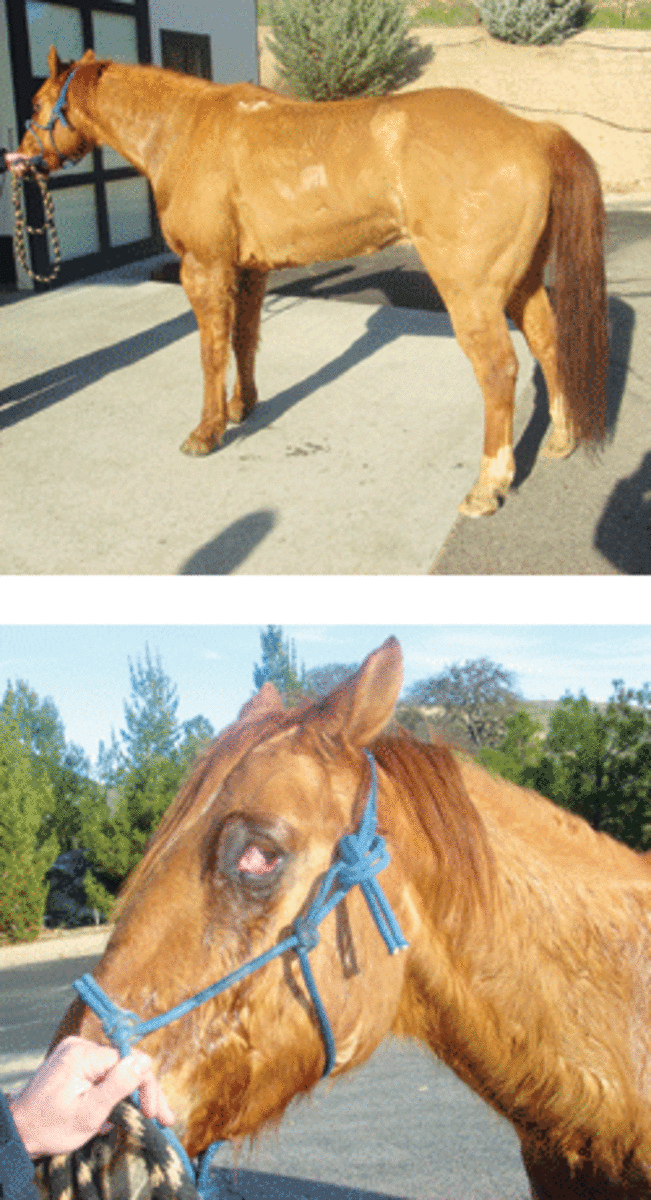
My horse died of tetanus last week. Yes, I’m a veterinarian and my horse died of tetanus. Tetanus is a totally preventable disease. Tetanus toxoid is the most effective vaccine for horses there is, in my opinion. I will try to explain what happened in hope that it may prevent this sort of thing happening to someone else.
The horse was purchased by my daughter a year and a half ago. He was 8 years old. Here is where casual assumptiveness entered the picture. We assumed the horse had been vaccinated, and put him on schedule for an annual booster with the other horses in early spring. That was done in February 2007. He was on schedule to have the annual booster consisting of sleeping sickness, tetanus and West Nile this February. He came down with tetanus the week I ordered this year’s vaccine.
In my opinion, this horse had never been vaccinated with the tetanus toxoid vaccine in his life prior to last year’s booster. I say this because I have not seen a case of tetanus in 25 years, and I know all the horses in my area aren’t annually vaccinated. Most of my younger colleagues have never seen a clinical case of tetanus. That’s how good the vaccine is.
There is no one to blame but myself for having fallen into a rather complacent state because of not having clinical cases of this disease as a recurring threat. It was a tragic wake-up call that one should check out the vaccination history when acquiring a new horse. If the history is unknown, proceed as if the horse has never been vaccinated. That means two primary vaccinations a few weeks apart. The vaccine is inexpensive and, to my knowledge, has no undesirable side effects.
Once a horse comes down with the clinical symptoms of tetanus, it’s a very difficult case to cure. There is no antidote to reverse the neurotoxin that the organism clostridium tetani produces. With all that can be done medically, it seems the survival rate is still less than 50 percent.
Another point I’d like to mention is that there was no detectable wound on this horse. There had to have been a puncture, bruise or internal lesion that became infected with the tetanus organism. It’s very common for horses to develop tetanus without an open wound, because this organism only grows in an airless or oxygen-free environment.










